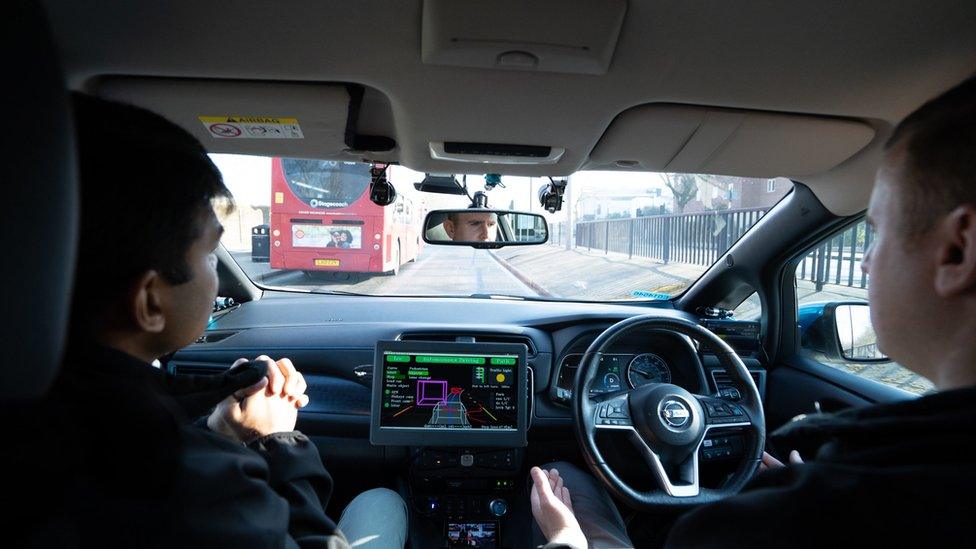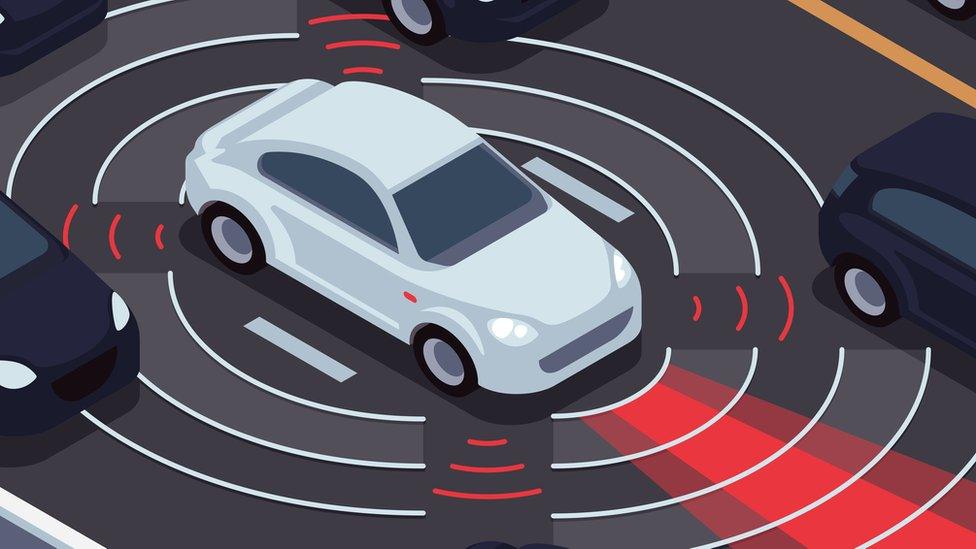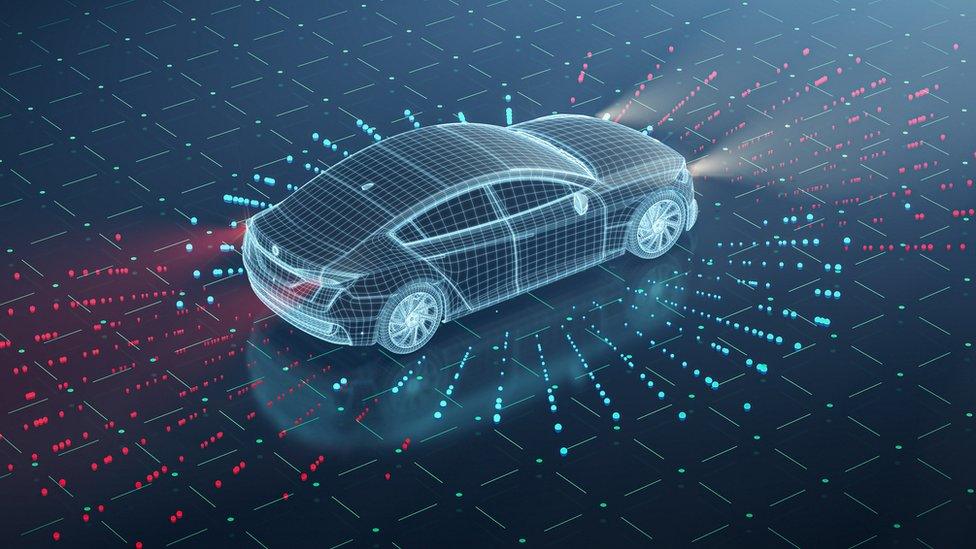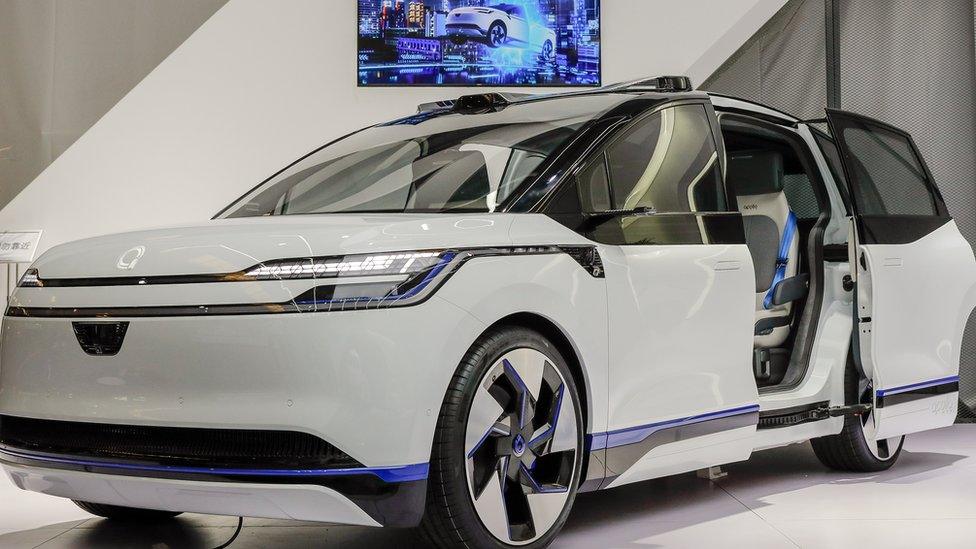Driverless Cars: Why traffic lights might not exist in the future
- Published
- comments

If cars all drive themselves in the future - will we need traffic lights?
A driverless car has driven around part of London hundreds of times as part of a UK trial to see if they are safe.
Now one of the engineers behind the tech says traffic lights might not be needed on our roads in 20 years if self-driving cars take off.
Thomas Tompkin of Smart Mobility Living Lab - which was behind the latest trial - says the technology could create a "seismic shift in how our roads are laid out".
But there are still concerns about driverless cars and how they can be used in a way that is safe for all road users.

Self-driving cars detect if other cars, people, or objects are nearby with lots of complicated technology
What are driverless cars?
Driverless cars use technology like artificial intelligence and super high-definition cameras instead of a driver to spot where hazards are and to control the vehicle.
Lots of big technology companies such as Google, Tesla and Uber are looking into driverless tech.
But because drivers have to make quick decisions and react to lots of different things when on the road, it's taking a long time for computers to attempt to replicate what a human does.
Even this latest test in London needed a driver behind the wheel who took over twice - to avoid crashing into a bus and again to avoid a lump of loose road surface.
Will traffic lights actually disappear?

Will traffic lights go if driverless cars get better?
Lots needs to happen before traffic lights are removed from roads, so we're probably a long way off even if it does happen.
First driverless cars need to be allowed on UK roads all the time, which the government says will be by 2025.
There are lots of safety & technical issues they need to solve first, but politicians like the former transport secretary Grant Schapps say they "have the potential to be huge".
What are the concerns about driverless cars?
According to study last year by the University College London, over half of people are uncomfortable with the idea of driverless cars.
And nearly 90% would want them to be clearly labelled on the road.
Professor Jack Stilgoe, a driverless car expert who wrote major research documents for the government, says he thinks we may see more road signals, or different kinds of crossings, because of driverless cars.

The cars use sensors to 'see' hazards all around them
"Their sensors and computers find it hard to understand the world around them if it is complicated and full of unpredictable people, bicycles, horses, pedestrians and such," he says.
But he admits driverless cars could be used in special areas "separated from other traffic, with pedestrian crossings that are clear".
- Published20 August 2022

- Published10 March 2021
